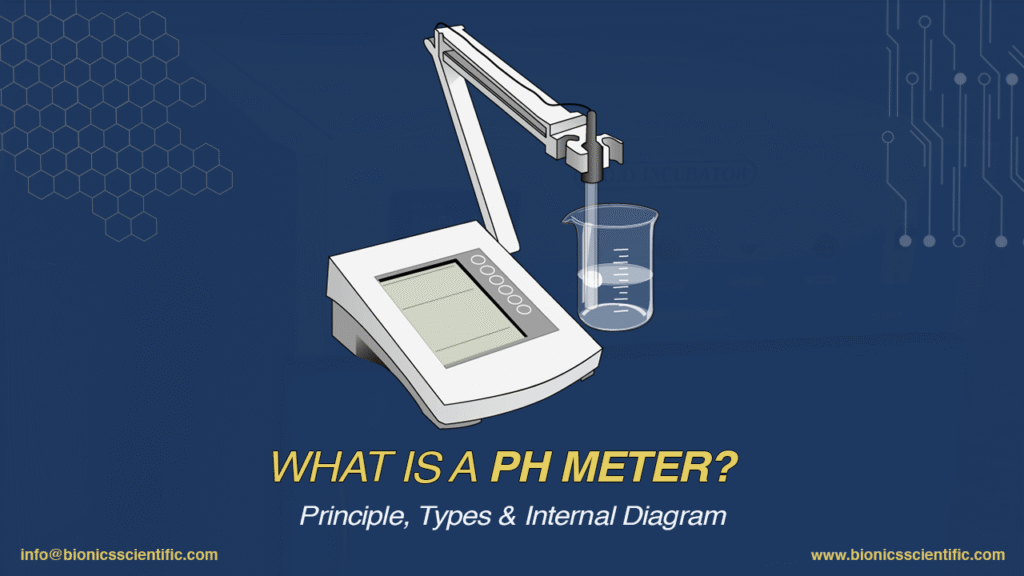ISO and CE-certified company: ISO + CE
certifications reinforce trust in our brand — showing that Bionics Scientific delivers quality-assured and globally compliant laboratory and scientific equipment.
304 Grade Stainless Steel
304 Grade Stainless Steel is a high-quality, corrosion-resistant alloy made with 18% chromium and 8% nickel. It’s widely used in laboratory and medical equipment due to its durability, non-reactive surface, and ease of cleaning.
At Bionics Scientific, we use 304 stainless steel to ensure our products are hygienic, long-lasting, and meet international safety standards.
EN 12469 Standard
EN 12469 is a European standard that defines safety and performance requirements for Cleanroom Equipments like biological safety cabinets (BSCs). It ensures protection for the user, environment, and the materials being handled.
This standard covers airflow, filtration efficiency (like HEPA filters), and cabinet design to guarantee safe handling of infectious or hazardous materials in labs.
At Bionics Scientific, our biosafety cabinets are designed to comply with EN 12469, ensuring reliable protection and international compliance in lab environments.
PCRC Sheet
PCRC (Cold Rolled Close Annealed) Sheet is a type of mild steel sheet that is cold rolled and then annealed (heat-treated) to improve its strength, finish, and formability. It has a smooth surface, is easy to paint or coat, and is commonly used in equipment bodies, panels, and non-load-bearing structures.
At Bionics Scientific, PCRC sheets are used in equipment frames or enclosures for their durability, cost-efficiency, and clean finish.
HEPA Filter
A HEPA (High-Efficiency Particulate Air) Filter is a specialized air filter that removes 99.97% of particles as small as 0.3 microns, including dust, bacteria, and aerosols.
Used in biosafety cabinets, cleanrooms, and air purification systems, HEPA filters ensure a contaminant-free environment—essential for labs, hospitals, and pharma units.
At Bionics Scientific, we use certified HEPA filters to maintain air purity and safety standards in our equipment.
NSF Standards
NSF (National Sanitation Foundation) Standards are internationally recognized guidelines that ensure products meet strict health, safety, and sanitation requirements — especially in food, water, and healthcare industries.
For laboratory and medical equipment, NSF certification confirms that the product is safe to use, easy to clean, and built for hygienic environments.
At Bionics Scientific, products built to meet NSF standards reflect our commitment to quality, safety, and global compliance.
NABL Certification
NABL (National Accreditation Board for Testing and Calibration Laboratories) certification is an Indian government recognition that a lab meets international standards for testing and calibration.
It ensures that the lab follows strict quality protocols, produces accurate and reliable results, and operates with technical competence.
At Bionics Scientific, we value NABL-accredited labs because they reflect trust, credibility, and compliance with global benchmarks.
MS Steel (Mild Steel)
MS Steel stands for Mild Steel, a low-carbon steel known for its strength, durability, and ease of fabrication. It’s widely used in construction, machinery, and equipment frames due to its cost-effectiveness and weldability.
At Bionics Scientific, we use MS steel for structural parts where high strength and stability are needed. Also offering solutions to make products 304 food grade stainless steel
User-Friendliness
User-friendliness refers to how easy and intuitive it is to use a product, interface, or equipment without needing special training or technical knowledge. It focuses on simplicity, clarity, and comfort for the user.
At Bionics Scientific, we design our equipment to be user-friendly, ensuring smooth operation, clear controls, and minimal learning curve — saving time and effort for professionals.
400 RPM (Revolutions Per Minute)
400 RPM means the equipment’s motor or rotating part completes 400 full turns in one minute. It indicates the speed of rotation and is commonly used in devices like shakers, centrifuges, and stirrers.
At Bionics Scientific, equipment with 400 RPM ensures efficient mixing or shaking without compromising safety or stability.
Polymer Testing (Plastic & Rubber Testing)
Polymer testing involves analyzing the physical, chemical, thermal, and mechanical properties of plastic and rubber materials. It ensures the material is safe, durable, and suitable for its intended use.
Tests may include:
- Tensile strength
- Hardness
- Melt flow index
- Aging resistance
- Chemical compatibility
At Bionics Scientific, we offer equipment tailored for accurate and reliable plastic and rubber testing—used in industries like packaging, automotive, medical, and consumer goods.



